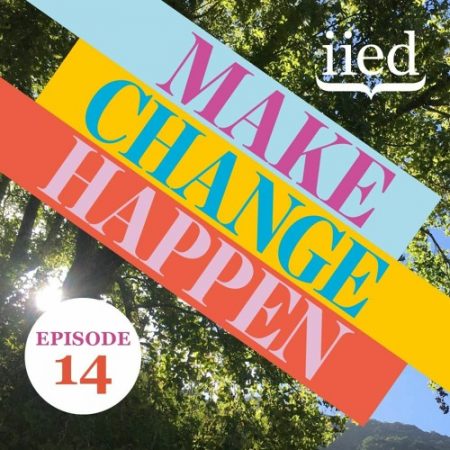Make Change Happen podcast: NbSI joins discussion on including nature in NDCs

In a recent episode of the IIED Make Change Happen podcast, NbSI’s Nathalie Seddon and others explored why it is important to include nature in Nationally Determined Contributions (NDCs) and how to increase ambition and actions for nature and climate to address the crises of climate change, nature loss and rising inequalities. Countries that signed the Paris Agreement on climate change are required to outline and communicate their climate actions in NDCs. These are non-binding national plans that form the basis for countries to achieve the objectives of the Paris Agreement.
Hosted by Liz Carlile, director of the Communications Group at IIED, the discussion included NbSI Director Nathalie Seddon, Sarshen Scorgie – Conservation South Africa, Harriet Drani – IUCN Uganda country office, Bob Natifu – Ministry of Water and Environment of Uganda, Maria Caballero Espejo – Ministry of Environment of Peru.
As Nathalie Seddon argues in this episode, we cannot meet our climate goals unless we work with nature. “We need to massively scale up the restoration, connection and protection of our natural and semi-natural ecosystems, not only land but also in the sea,” she explains.
For this year’s COP26 and COP15 to be successful, countries must mobilise finance and put in place the right finance mechanisms that can channel money to where it matters to support integrated approaches to address mitigation and adaptation together. All guests highlight their hopes and suggestions to make us all walk the talk of climate ambition in COP26 and beyond.
IIED’s ‘Make Change Happen’ podcast provides an opportunity to hear our researchers and guests discuss key global development challenges and explain what we are doing to support positive change.
Read more and listen to the episode on the IIED episode web-page.




